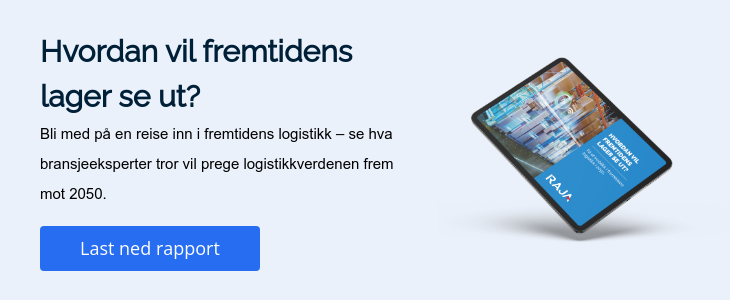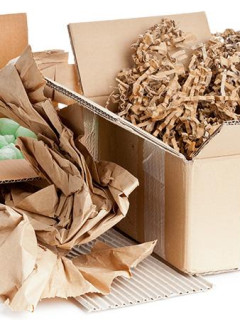In today’s world of modern logistics, warehouses are undergoing major changes, with many businesses either expanding upwards or moving closer to urban areas.
These strategic changes are being made to meet customer needs faster, reduce operating costs and reduce the environmental impact of logistics centres. The question is where the warehouses of the future will be located. Will they embrace urbanisation? Current trends and regulations give us good insight into the development of future warehouse locations.
The requirement for zero net depletion of space
Currently, around 300 hectares of land available for urban development per year in France are used to build logistics buildings, which corresponds to about 1% of the land that is reused. However, this trend is expected to decrease rapidly towards zero.
The implementation of the Climate and Resilience Act in August 2021 emphasises the need to stop the artificial degradation of land. This legislation obliges local authorities to achieve a balance between land reclamation and reclamation, and prohibits the conversion of natural agricultural areas for various activities, including logistics.
Because of this, logistics operators are encouraged to adopt plug-and-play technologies that can be adapted to different building structures and will make it easier to comply with the changing regulations.
Experts point to the need to halve the amount of land that has been built on over the next decade, requiring a fundamental change in how warehouses are designed. As local authorities prioritise housing and education infrastructure over logistics operations, multi-storey warehouses, which take up less space, are the solution.
Innovative approaches to smart logistics: Hybrid hotels
To maximise space utilisation and increase efficiency, some companies are exploring non-traditional solutions such as hybrid hotels for their logistics operations.
These projects integrate multiple functions within one structure, promoting synergies between different stakeholders. One example is a hybrid hotel project in Valenton, where a former landfill site was reused to build a BREEAM EXCELLENT certified building on 2.5 hectares. This innovative facility houses business units, urban distribution centres, a solar power plant and integrated parking. The entire facility reflects a vision of creating a sustainable urban ecosystem.
Get closer to your customers
In recent years, there has been a noticeable trend for logistics facilities to move closer to cities, primarily to reduce distances for logistics providers. This shift is expected to continue and intensify towards 2050, driven by the need for local distribution and sustainable modes of transport. The emergence of Low Emission Zones (LEZs) further accelerates the urbanisation of the warehouse, requiring the development of innovative logistics strategies. These strategies involve the establishment of intermediate stations on the outskirts of cities, followed by the use of environmentally friendly transport options within urban areas.
Summary of benefits:
- Improved customer satisfaction through faster delivery
- Businesses reduce operating costs and land consumption
- Reducing environmental impact through sustainable practices
- Optimisation of urban logistics networks for efficient last-mile delivery
- Stakeholders benefit from synergies through innovative warehouse designs.
In general, the relocation of warehouses to urban areas represents a major change in the logistics landscape. This development is driven by the need to focus on customers, cost efficiency and environmental sustainability. By embracing innovative solutions and collaborative approaches, stakeholders can navigate regulatory challenges and capitalise on opportunities for joint growth and development.
This article has been prepared with contributions from Laurent SABATUCCI, Managing Partner and Founder of EOL and Chazli BAALBAKI, Development Director at Faubourg Promotion.
Would you like to know more about how RAJA can help you prepare for the future of logistics? Feel free to contact RAJA’s customer centre at post@rajapack.no or phone 22514000. You can also visit us at www.rajapack.no.















